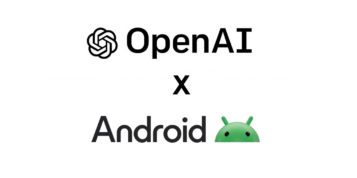We’ve heard about the adoption of AI in numerous ways when it comes to our daily life. Netflix predicts which show we’d love to binge-watch and Nest learns our temperature preferences at home. Even medical science is making strides in the application of AI to analyse DNA and data to create cures for cancer and more. So with technology making tasks easier, faster and more effective at speed, it stands to reason that AI in advertising is only going to make brands and media agencies smarter as well.
Data decisions
One of the main reasons for this is the amount of data and consumer information we have at our disposable as marketers. Far too much for the human brain to compute, organise or utilise, this ‘ocean’ of data presents both a challenge and a great opportunity for businesses. On one hand, there’s more than we know what to do with. On the other, it holds the secret to something advertisers have been attempting to discover since the ‘Mad Men’, Madison Avenue era – a clear picture of who will purchase what we have to sell.
With AI we can make sense of this data, glean insights from it, and use it to determine the perfect consumer, moment, device and context before serving an advert. AI does the heavy lifting, and is a powerful marketing tool when you consider no human could decide in a millisecond where to place an advert across 300 billion real-time daily data signals.
Unprecedented insights
As cool as that sounds, AI is actually even smarter than this and capable of more than basic programmatic automation. Although an AI powered platform like Sizmek’s will provide the brain power to decide which ad to serve and where in a heartbeat, the benefits to brands and agencies go deeper. The value also lies in its ability to analyse incomprehensible amounts of data, learn from it, and then report back. In turn this provides unprecedented levels of insights that marketers – even entire organisations – can use to improve campaigns, reach new consumers and increase conversions.
Understanding consumers
AI is helping us to identify patterns in data sets, providing insight into the factors driving conversions. This allows marketers to optimise their targeting towards a specific outcome (think % increase in online insurance applications, for example), rather than relying on segments and third-party data. AI will analyse billions of data points – looking at what’s working and what isn’t – to identify the consumers most likely to be interested in a product or service.
Rather than assigning a specific set of parameters, such as age or gender, marketers can now identify the elements of a campaign that work before discovering and reaching a world of new customers. This is a major milestone for both programmatic and for advertising in general. It’s an industry in which businesses have relied on knowledge of their ‘target’ customer for decades. Now, AI could be giving them new information about who those customers are, where they are and what they want.
Augmented intelligence
AI isn’t just making technology or ad serving platforms smarter, though. People running businesses, marketing departments and ad campaigns become smarter as a result. And this major shift in the way we learn about consumers then reach them online is going to categorically change the job of the marketer. Contrary to many frightening reports about bots taking over the world and stealing our jobs, AI will augment our intelligence, providing us with a powerful tool to make decisions about who we should target and how. People, not machines, will be pulling the strings, using AI-powered technologies to become smarter themselves; with more knowledge than ever about who their customer is and how to delight them with creative messages at the perfect moment.
The responsibility is on the marketer to become something of a hybrid – balancing the need to be consumer focused, data savvy, and with an understanding of how each application or piece of tech at their disposal can make them more effective and help their organisation succeed. Because of this marketers will not be confined to one function or department in future. They will play a pivotal role in data management, digital transformation and strategic direction. AI powered programmatic is just the beginning.





